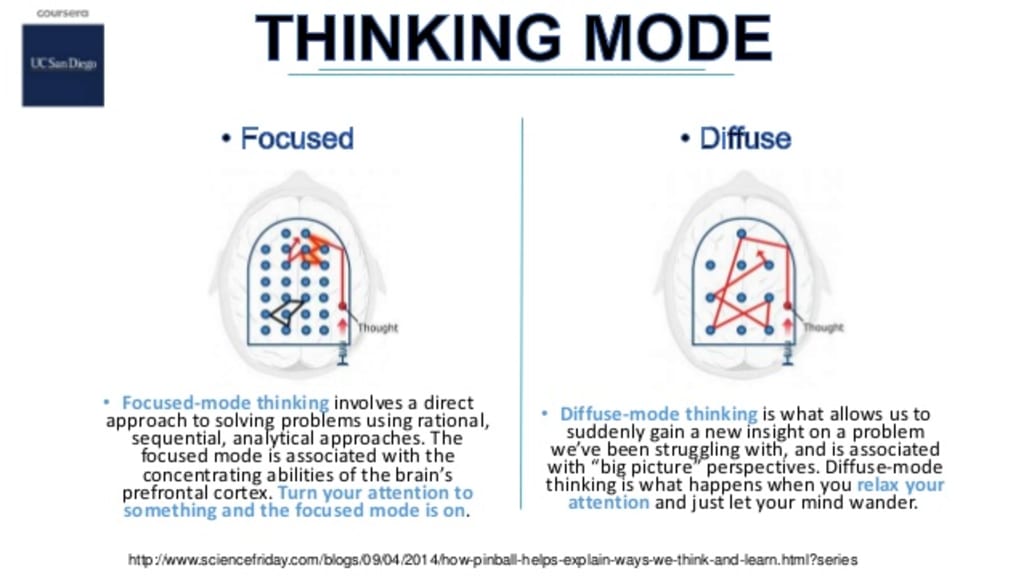Success Comes to Those Not Seeking Success
You'll never see the forest if you're hell-bent on finding a tree.

"Luck Favors the Brave"
In early 2003, I read an article titled "Be Lucky — it’s an easy skill to learn" Richard Wiseman, a psychologist at the University of Hertfordshire. The title, I disagree with. The concept, however, is solid. The success rate of a person who tries stuff is clearly better than one who does not.
Wiseman wrote the piece to learn what effect somebody's mindset has upon what we think of as luck. He didn't start off writing for that purpose, but that's how it ended up. To start, he wanted to determine if luck even exists. As it would turn out, Yes! Luck seems to be an external influence, and that it is not. You actually can deliberately affect the probabilities of succeeding.
Lucky Mindset
After placing an ad in a local paper to invite "consistently lucky or unlucky", Wiseman had a nice sample set to work from. The demographics covered all levels of education, and ages from 18 to 84. The volunteers were interviewed and then followed for a number of years. They were to keep journals, take questionnaires, and have their IQs measured.
Those who considered themselves unlucky were entirely unaware of what they were doing wrong. More correctly, what they weren't doing right. The core of it all is a negative or positive thought process. You have your thoughts to thank, or blame, for your outcomes.
Serendipity isn't really serendipitous.
Most of us are constantly staring opportunity in the face. Unfortunately, like myself with friends and family, we simply don't always recognize it. That's effectively all luck is; taking advantage of opportunities. A self-professed lucky person pays attention to things an unlucky person doesn't.
Each participant received a newspaper to both groups and asked everyone to browse it and report how many photos there were inside it. Unlucky ones would take a few minutes counting, and give the answer; a lot of us would. The lucky people, on the other hand, spent only a couple seconds, and give exactly the right answer with no counting. Impressive, right? Lucky guesses, all of them? Of course not. Wiseman had written a message on page two:
“Stop counting. There are 43 photographs in this newspaper.”
What's going on, here?

By Vera de Kok derivative work: Hic et nunc [CC BY-SA 3.0], via Wikimedia Commons
The easy assumption is that the message must have been a small or easily missed bit of text. It wasn't. Most of page two was dominated by the very clear message. It could have only been more obvious had it been lit up and blinking. The obvious part of this whole study got some pretty significant support here: unlucky people are tense and too concerned with finding exactly what they're looking for. You can see how unlucky you'd feel if you were so intent upon grabbing your morning coffee that you didn't notice the axe murderer waiting there. Okay, well, that was kind of messed up.
Anxiety screws with attention, as anyone experienced with anxiety knows. It interferes with the ability to notice anything other than what's being looked for. It isn't stupid. On the contrary, the solid focus and task orientation is something many of us have trouble accomplishing. That sharp focus can be detrimental in certain situations that don't call for it. Artificially induced anxiety (often called "fun") such as high steaks in an attention game will cause people to become oblivious to the unexpected. In the context of a game, that's challenging and enjoyable.
The basic concept is generally given as advice by successful people, without necessarily knowing the underlying processes. You may have heard the saying "Love only comes when you stop looking," or "Success comes to those who are too busy to seek it."
Chill. Relax. Stop worrying, if you can. This engages the day-dreamy, diffuse mode of thought patterns. This is helpful in studying, and learning, and apparently luck.
About the Creator
Casey Parker
I'm a very cerebral person, with an eclectic history of jobs, projects, and studies. I've been everything from a C-level executive (which I hated), to a bottom level peon (which I enjoyed). Learn from somebody else's experience!






Comments
There are no comments for this story
Be the first to respond and start the conversation.